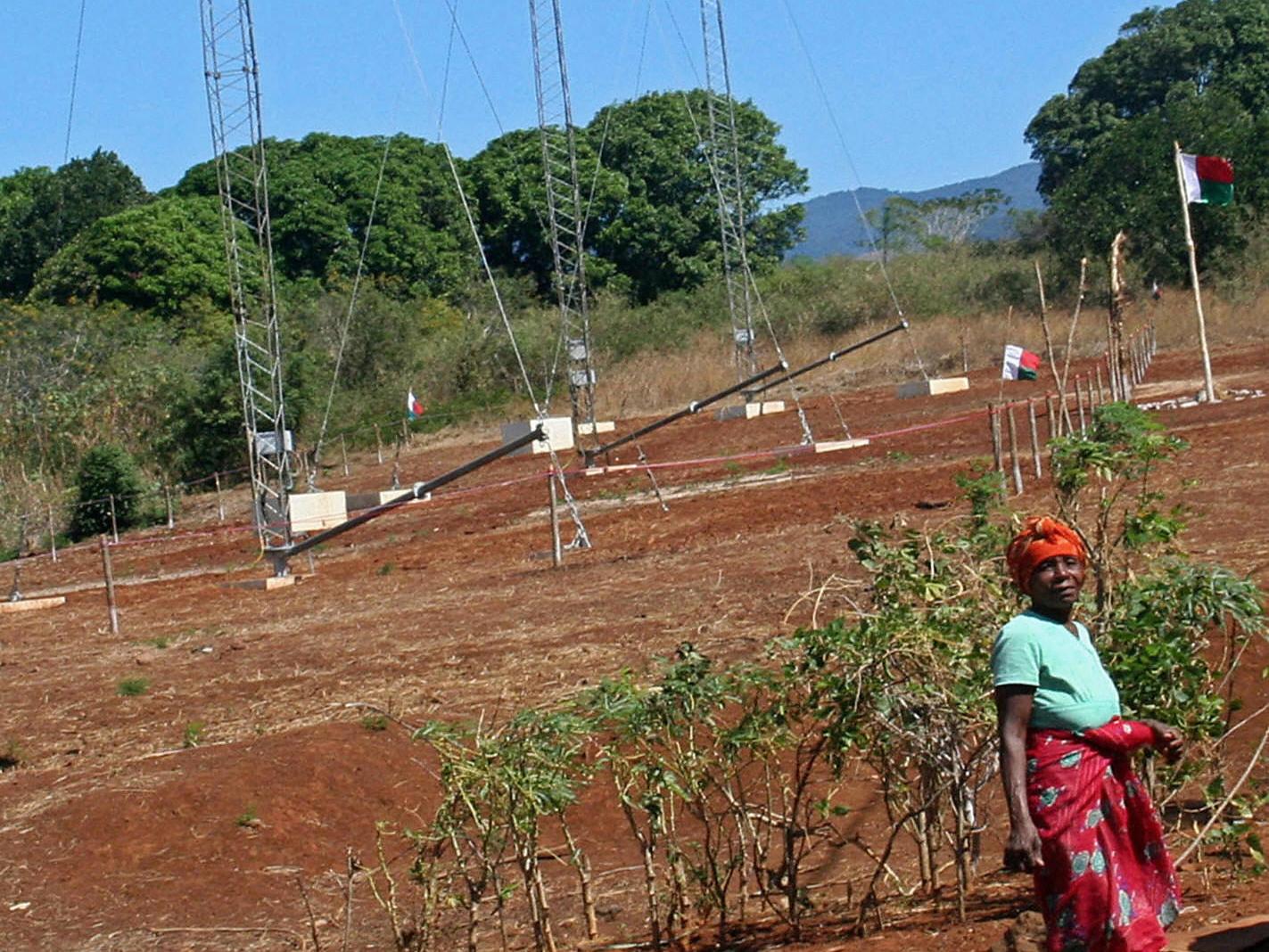The Independent's journalism is supported by our readers. When you purchase through links on our site, we may earn commission.
Rural Africa could be powered using genetically modified algae, say scientists
Solar power cells that use living organisms to generate electricity could one day bring power to remote communities

Your support helps us to tell the story
From reproductive rights to climate change to Big Tech, The Independent is on the ground when the story is developing. Whether it's investigating the financials of Elon Musk's pro-Trump PAC or producing our latest documentary, 'The A Word', which shines a light on the American women fighting for reproductive rights, we know how important it is to parse out the facts from the messaging.
At such a critical moment in US history, we need reporters on the ground. Your donation allows us to keep sending journalists to speak to both sides of the story.
The Independent is trusted by Americans across the entire political spectrum. And unlike many other quality news outlets, we choose not to lock Americans out of our reporting and analysis with paywalls. We believe quality journalism should be available to everyone, paid for by those who can afford it.
Your support makes all the difference.Fuel cells powered by living algae that are five times more efficient than current models, have been designed by scientists at the University of Cambridge.
It is thought they could one day be used to provide electricity to places where there is no existing electrical grid system, such as parts of rural Africa.
The new design makes use of genetically modified algae capable of efficiently carrying electric charge.
It uses the photosynthetic ability of plants and algae to convert sunlight into electric current.
Current algae-based fuel cells are a long way from being as efficient as their non-living counterparts, such as solar power, which has emerged in recent years as a green alternative to fossil fuels.
But the Cambridge scientists have developed a breakthrough technique that significantly improves on old models, which they describe in the journal Nature Energy.
“We took the process and saw there were two separate parts – one where you are generating the charge and one where you are converting the charge into power,” said the study's co-author, Kadi Liis Saar, a chemistry PhD candidate at the university.
“We decoupled the parts from one another so they weren’t in a single chamber but two separate chambers – this way we were able to optimise both independently and get a better performance.”
The scientists also used “advanced algal cells where some genes were modified so they would have better performance,” said Ms Saar.
This alteration ensured the amount of electrical charge wasted during photosynthesis was minimal.
“This a big step forward in the search for alternative, greener fuels,” said Dr Paolo Bombelli, another of the study’s authors. “We believe these developments will bring algal-based systems closer to practical implementation.”
At present, conventional solar panels are still more efficient than the new design.
However, the researchers suggest the ability of algae to grow by themselves with little energy input and the relative ease of manufacture, make biological solar cells an appealing prospect.
This is particularly true for remote communities in need of power but without the necessary infrastructure, for example those found in some parts of rural Africa.
“Conventional solar cells are normally produced in a special facility away from the site where you are using them,” said Ms Saar. “The systems we have been producing, we think that for example local communities living in rural areas in rainforests would potentially have the ability to produce them within those communities.”
Rural Africa was among the places that the research team suggested the technology would be useful for.
Another advantage of using living algae is their natural ability to store energy for later, meaning they could operate even when the Sun is not shining.
For the time being the scientists are working to make these fuel cells more efficient so they can compete with existing solar cells, as well as optimising their physical design.
Their designs are currently still confined to the lab, but Ms Saar sees them having a key future role in providing power to people in remote locations.
“If you’re in a rainforest and want to charge your phone, you could potentially use some of the plants that are there and build something together yourself,” she said. “Simple things like this where you don’t care about powering a full city but just need a little energy.”
Join our commenting forum
Join thought-provoking conversations, follow other Independent readers and see their replies
Comments